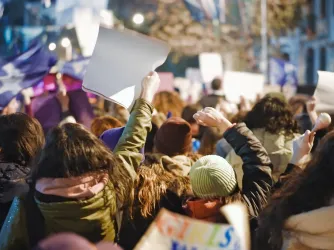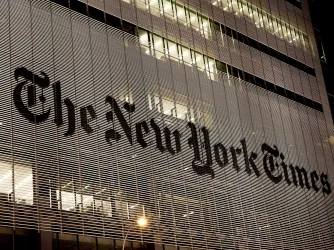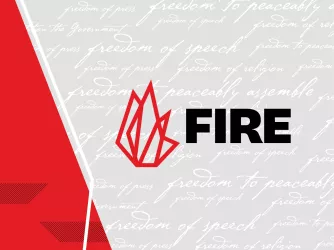Table of Contents
Art Not So Popular at the Art Institute of California
Today, while perusing Inside Higher Ed, my attention was brought to a short blurb about a student at the Art Institute of California in San Francisco who had been censored by the administration there. According to ABC 7 News in San Francisco, the student, who majored in “game art,” wrote a story about black kids on a killing rampage, complete with AK-47s. The twist? The rampaging kids are actually characters in a video game, being controlled by white kids in the suburbs. Artist Simone Mitchell explained his work this way: “I wanted to write a story describing a lot of the sexism, a lot of the racism and discrimination that’s in these video games and bring that out to life.” He goes on to say that white suburban types “are copying what is cool about this culture, but they are not looking at the poverty that a lot of these hip-hop rappers and gangster-rappers are growing up in, the broken families that they are growing up in.” Mitchell’s professor, Robert Ovetz, approved of the written work and published 500 copies to distribute around the school.
Unfortunately, Mitchell’s social commentary was lost on the Art Institute, which, according to the report, quickly “removed most of the copies” of the work. ABC 7 says it has a copy of an e-mail “sent by the dean of Academic Affairs which says the magazine was an unprofessional work that does not represent the school well.” The report also says that “[t]he dean of Academic Affairs says the school tries not to censor arbitrarily but sometimes it makes sense to stop things in their tracks before students go down a road they did not intend and cannot return from.”
You will pardon me, I hope, if I am not particularly relieved by the fact that the Art Institute of California “tries not to censor arbitrarily.” Especially because, according to the news report, Ovetz, the professor who made the mistake of publishing this artwork, was fired and, as they say, “[t]he school won’t tell us why.” (I have a guess.) Mitchell has transferred to another school. Artists who wish to make social commentary with their art would be wise to avoid the Art Institute of California, it seems.
One might easily object that the Art Institute of California is a private college and therefore has the legal right to censor (and if it wasn’t in California, where state law precludes most private college censorship, they’d probably be right). However, this is no excuse. FIRE often argues that colleges that promise a liberal education, whether or not they explicitly promise freedom of expression, are nonetheless obligated to provide that freedom because without it such an education is impossible. This situation is an excellent example of why we insist on this standard. I think a fair rule of thumb is this: when a private art college is making the local community college look like a bastion of freedom of expression, it’s the art school that has the problem.
Recent Articles
Get the latest free speech news and analysis from FIRE.

In defense of fiery words
In the wake of political violence, calls to criminalize rhetoric are growing louder. But Brandenburg v. Ohio set the bar — and it’s a high one.

Why RICO can’t be used to punish speech
RICO was meant to take down mob bosses — not protesters with megaphones. When officials try to twist racketeering laws into a cudgel against dissent, they don’t just misapply the law; they chill speech at the core of democracy.

Trump’s New York Times lawsuit is a call to action for the ‘paper of record’
The Gray Lady must stop Trump’s onslaught on press freedom dead in its tracks.

FIRE statement on FCC threat to revoke ABC broadcast license over Jimmy Kimmel remarks about Charlie Kirk
FCC chair Brendan Carr is threatening ABC for comments about Charlie Kirk’s shooter that Jimmy Kimmel made during his opening monologue on Monday